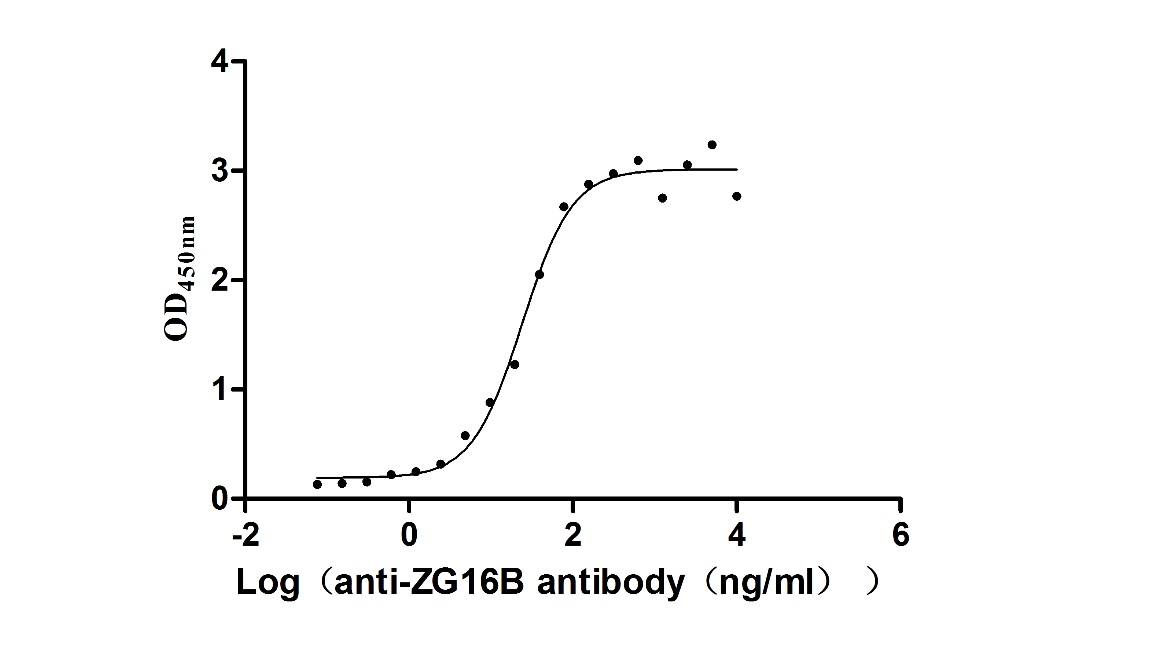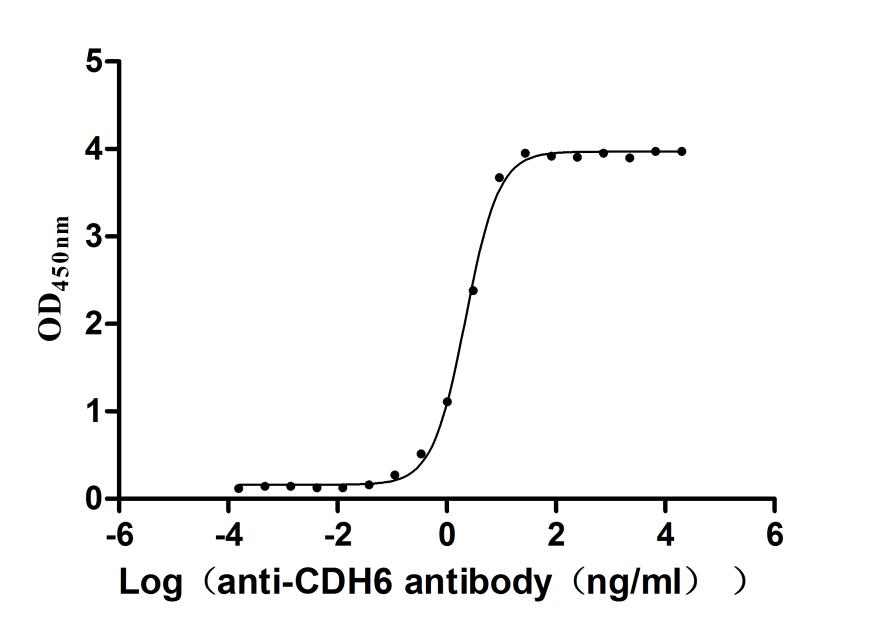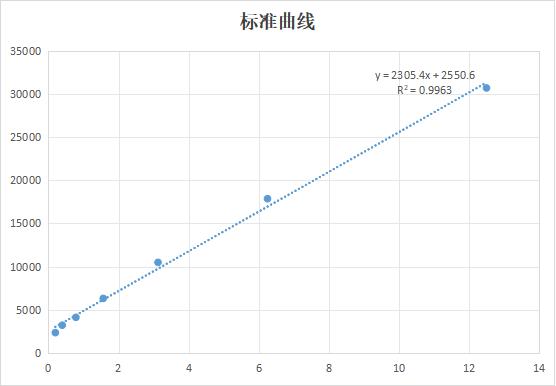Recombinant Human Cysteine-rich secretory protein LCCL domain-containing 2 (CRISPLD2)
In Stock-
中文名称:Recombinant Human Cysteine-rich secretory protein LCCL domain-containing 2(CRISPLD2)
-
货号:CSB-BP884430HUb1
-
规格:¥3168
-
图片:
-
其他:
产品详情
-
纯度:Greater than 85% as determined by SDS-PAGE.
-
基因名:CRISPLD2
-
Uniprot No.:
-
别名:CRISP-11; CRISP11; Crispld2; CRLD2_HUMAN; Cysteine-rich secretory protein 11; Cysteine-rich secretory protein LCCL domain-containing 2; DKFZP434B044; LCCL domain-containing cysteine-rich secretory protein 2; LCRISP2; MGC74865
-
种属:Homo sapiens (Human)
-
蛋白长度:Full Length of Mature Protein
-
来源:Baculovirus
-
分子量:57.8 kDa
-
表达区域:23-497aa
-
氨基酸序列YLLPNVTLLEELLSKYQHNESHSRVRRAIPREDKEEILMLHNKLRGQVQPQASNMEYMTWDDELEKSAAAWASQCIWEHGPTSLLVSIGQNLGAHWGRYRSPGFHVQSWYDEVKDYTYPYPSECNPWCPERCSGPMCTHYTQIVWATTNKIGCAVNTCRKMTVWGEVWENAVYFVCNYSPKGNWIGEAPYKNGRPCSECPPSYGGSCRNNLCYREETYTPKPETDEMNEVETAPIPEENHVWLQPRVMRPTKPKKTSAVNYMTQVVRCDTKMKDRCKGSTCNRYQCPAGCLNHKAKIFGTLFYESSSSICRAAIHYGILDDKGGLVDITRNGKVPFFVKSERHGVQSLSKYKPSSSFMVSKVKVQDLDCYTTVAQLCPFEKPATHCPRIHCPAHCKDEPSYWAPVFGTNIYADTSSICKTAVHAGVISNESGGDVDVMPVDKKKTYVGSLRNGVQSESLGTPRDGKAFRIFAVRQ
Note: The complete sequence including tag sequence, target protein sequence and linker sequence could be provided upon request. -
蛋白标签:N-terminal 10xHis-tagged and C-terminal Myc-tagged
-
产品提供形式:Liquid or Lyophilized powder
Note: We will preferentially ship the format that we have in stock, however, if you have any special requirement for the format, please remark your requirement when placing the order, we will prepare according to your demand. -
缓冲液:Tris-based buffer,50% glycerol
-
储存条件:Store at -20°C/-80°C upon receipt, aliquoting is necessary for mutiple use. Avoid repeated freeze-thaw cycles.
-
保质期:The shelf life is related to many factors, storage state, buffer ingredients, storage temperature and the stability of the protein itself.
Generally, the shelf life of liquid form is 6 months at -20°C/-80°C. The shelf life of lyophilized form is 12 months at -20°C/-80°C. -
货期:3-7 business days
-
注意事项:Repeated freezing and thawing is not recommended. Store working aliquots at 4°C for up to one week.
-
Datasheet & COA:Please contact us to get it.
相关产品
靶点详情
-
功能:Promotes matrix assembly.
-
基因功能参考文献:
- Our results suggest that CRISPLD2 rs4783099 may represent a risk factor for NSCPO (non-syndromic oral clefts). PMID: 27328068
- Data suggest that suppression of CRISPLD2 increases the risk of lung inflammation in early life and adulthood. PMID: 27597766
- Our data suggest that CRISPLD2 may have a unique anti-HMGB1 effect via miRNA155 and play an important role in immune balance. PMID: 26624800
- CRISPLD2 is a target of progesterone receptor and its expression is decreased in women with endometriosis. PMID: 24955763
- Results demonstrate genetic polymorphism of CRISPLD2 gene is associated with an increased risk of non-syndromic cleft lip with or without cleft palate. PMID: 25496823
- findings define a role for LGL1 in fibroblast expansion and migration, epithelial cell migration, and mesenchymal-epithelial signaling, key processes in fetal lung development. PMID: 25480331
- results support the hypothesis that variants in the CRISPLD2 gene may be involved in the etiology of NS CL(P). PMID: 20815724
- Both LCCL-domains of human CRISPLD2 have high affinity for lipid A. PMID: 24090571
- There is a decreased expression of CRISPLD2 in septic shock and it is association with procalcitonin in sepsis. PMID: 23799041
- CRISPLD2 gene contributes to the etiology of NSCLP in the Northwestern Chinese population. SNP rs1546124 is significantly related to NSCLP, associated with both CL/P and CPO groups, and SNP rs4783099 is significantly associated with CPO. PMID: 21800413
- the present investigation did not support the hypothesis of the involvement of CRISPLD2 in nonsyndromic cleft lip and palate PMID: 21244519
- three SNPs in northern Chinese population found an association between these polymorphisms and NSCLP in both single-marker and haplotype analyses. data further strengthen the conclusion that altered CRISPLD2 is associated with NSCLP susceptibility. PMID: 20662919
- CRISPLD2 is expressed in the mandible, palate and nasopharynx regions during craniofacial development at E13.5-E17.5, respectively. Altogether, these data suggest that genetic variation in CRISPLD2 has a role in the etiology of NSCLP. PMID: 17616516
- present work introduces mammal CRISPLD2 as a major serum protein that acts as a natural LPS antagonist and promises to be of considerable preventative value against endotoxic shock. PMID: 19864597
显示更多
收起更多
-
亚细胞定位:Secreted.
-
蛋白家族:CRISP family
-
数据库链接:
HGNC: 25248
OMIM: 612434
KEGG: hsa:83716
STRING: 9606.ENSP00000262424
UniGene: Hs.513779
Most popular with customers
-
Recombinant Human Heat-stable enterotoxin receptor (GUCY2C), partial (Active)
Express system: Mammalian cell
Species: Homo sapiens (Human)
-
Recombinant Human Claudin-18.2 (CLDN18.2)-VLPs (Active)
Express system: Mammalian cell
Species: Homo sapiens (Human)
-
Recombinant Macaca fascicularis zymogen granule protein 16 homolog B (ZG16B) (Active)
Express system: Mammalian cell
Species: Macaca fascicularis (Crab-eating macaque) (Cynomolgus monkey)
-
Recombinant Macaca fascicularis Cadherin 6(CDH6),partial (Active)
Express system: Mammalian cell
Species: Macaca fascicularis (Crab-eating macaque) (Cynomolgus monkey)
-
Recombinant Human Urokinase-type plasminogen activator(PLAU) (Active)
Express system: Mammalian cell
Species: Homo sapiens (Human)

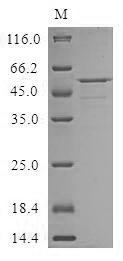

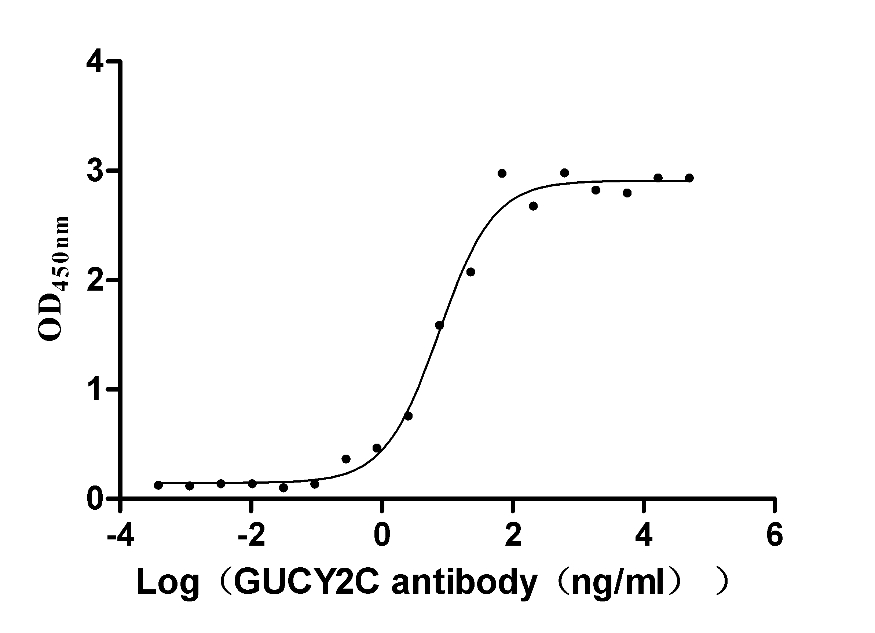
-AC1.jpg)
